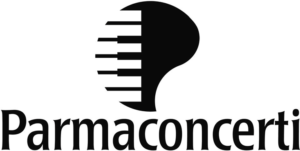Payroll Outsourcing: Pros, Cons, & Risks vs In-House Payroll
There are a few signs it may be time to think about outsourcing your payroll solution. If your current system causes frequent mistakes, this could become a liability. This can lead to high costs, wasted time, and lost productivity.
This may take the form of data punch cards, fingerprint scans, software systems, data provided by HR, or a combination. The PEO will manage payroll and other administrative services, and will often also offer employee benefits. It may also offer services for employees in multiple states or even multiple countries.
User friendly with top-notch support
However, if you are not getting value out of these benefits, you’re spending extra. You will work with the service providers to get them all the information they need to set up your payroll processing. This includes tax forms, job applications, worker information, payment amounts, benefits information, time sheets, and bank information for what is amortization direct deposits. While payroll outsourcing can help ensure that compliance with local regulations is met, the responsibility for compliance still falls on the employer, not the payroll processor. In some jurisdictions outsourcing payroll may not be all that needs to be done in order to ensure that all local regulations are being met.
- That provider should also share best practices and guidance tailored to your needs and goals.
- Also, you can see the difference when you compare the cost of the time your employees spend on payroll-related activities to what you spend on a payroll service.
- They then make deductions for tax payments and any employee benefits contributions.
When that happens, you’ll be responsible for deducting and remitting a portion of their income to the appropriate party each pay period. It’s another little thing most small business owners would rather not deal with. A lot of small businesses manage to keep everything straight (and you can always check out our guides to getting set up right and calculating payroll). But if you feel like you might be ready to outsource payroll, here are some signs that it’s something you should explore, as well as some information about choosing the right type of provider. Some suppliers offer additional services related to payroll, such as pension plans, benefits administration, and timekeeping systems.
What Is Outsource School?
But if you hire someone who’s just learning the ropes, it can wind up meaning more work for you (at least in the interim) as they get up to speed. Note that some will charge an extra fee for these regular filings, so make sure you understand all the costs that are included before you pick a provider. Under or overpaying employees is never a good idea, but business owners who are overwhelmed by the amount of paperwork they have to deal with often make mistakes during harried late-night payroll sessions. You’ve got to pay employees on time, but you’ve also got to set the right number of allowances, deduct the right amount, and accurately enter the number of hours worked (among other things). When you get any of the numbers wrong, it means having to correct your previous payroll, and it can also mean your tax filings will include mistakes if you don’t catch them in time. Worst of all, paying employees or contractors too little can cause major friction with your team.
Data Concerns
This gives you more flexibility when choosing different levels of service for your organization. It’s critical that you research each plan’s features and price point. For more advanced services, pricing can be a little higher per month—but the long-term savings in time, effort, and accuracy quickly make outsourced payroll cost-effective.
Our Services
The Internal Revenue Service (IRS) provides an excellent breakdown of the different types of payroll service provider in the United States. For smaller businesses, outsourcing payroll through a payroll solutions software solution will almost always be cheaper than DIY solutions. The best payroll providers will work with HR — not against it — to find the best process. Outsourcing payroll also translates to a lower risk of errors and compliance violations. Instead of juggling every law internally, you can put that concern in the hands of a true compliance expert. At the very least, outsourcing payroll lets you offload this crucial task without needing to hire your own expert with a full-time salary.
If you’re considering outsourcing payroll to someone else, you should weigh up the pros and cons. While payroll can be one of the trickier parts of operating a business, you can use our online payroll calculator to do most of the heavy lifting. In just a few clicks, calculate your employee’s gross pay, net pay, and federal and state withholdings (for any state) without breaking a sweat. Many of your employees don’t have much wiggle room when it comes to their personal finances. For example, the Federal Reserve recently found that 40% of US households can’t afford to pay for an unexpected $400 expense. Payroll is one of the most commonly outsourced company functions.
While different companies will have different criteria for evaluating a good match, they all must ensure a provider maintains adequate protections for employee data and complies with relevant regulations. Whether you’re deducting benefits or wage garnishments, payroll outsourcing services usually make it easy to automate the process. It’ll be one less thing for you to think about (and potentially mess up). For a lot of small businesses owners, outsourcing payroll can save a lot of time, money, and headaches. You may want to connect time-tracking software, benefits administration software, and any payroll software you’re already using to your account.


